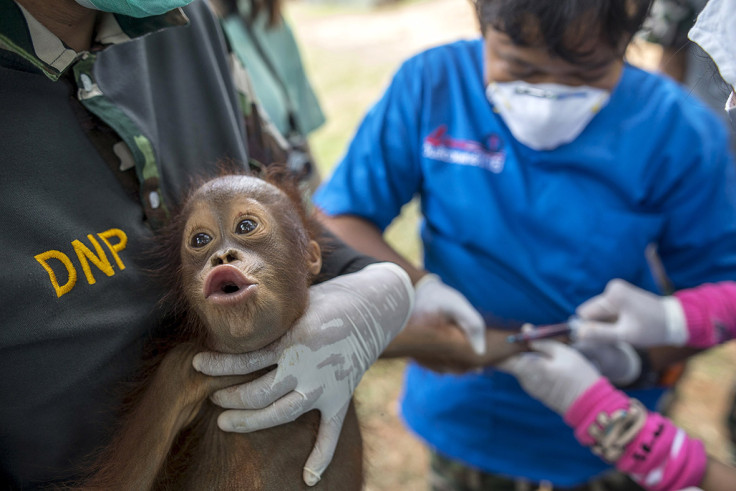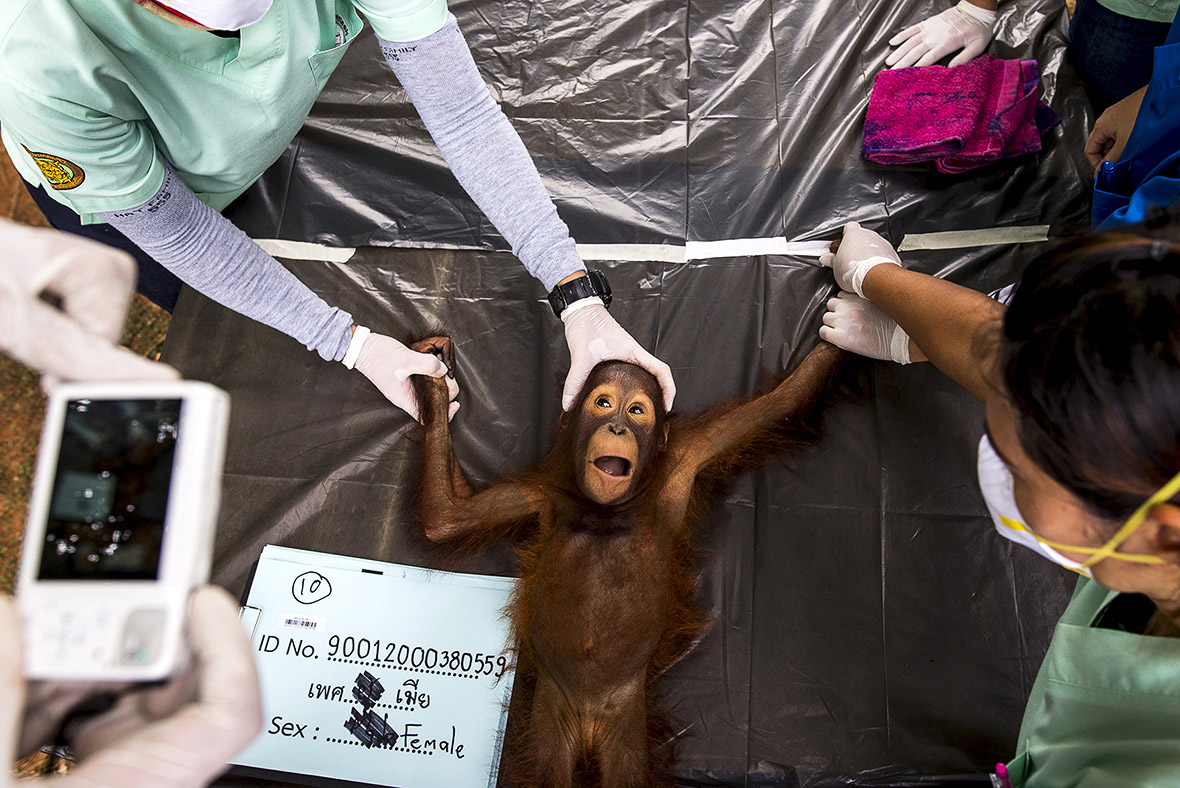Thailand: Orangutans confiscated from tourist attractions undergo health checks before being returned to Indonesia
Fourteen orangutans have been given full health examinations as Thai vets prepare to repatriate them to their country of origin, Indonesia.
Some of the apes were seized from smugglers, but most of the endangered Sumatran and Borneo-Kalimantan orangutans were confiscated from entertainment businesses.

After the apes were put to sleep, vets examined their teeth and took blood and hair samples to test for diseases such as rabies, foot and mouth disease, tuberculosis, hepatitis and herpes.
Banpot Malihuan, head of Kao Pratubchang Conservation Centre, said the orangutans will be kept in quarantine to ensure they don't come into contact with any diseases before they are returned to Indonesia in September.
The orangutans also have their fingerprints taken and undergo DNA tests to ascertain their species and country of origin.










Thailand has several theme parks that stage controversial attractions such as Thai boxing matches between orangutans. Safari World in Bangkok is home to a troupe of apes dressed in silky boxing shorts and bright red gloves pretending to slug it out to the delight of tourists.
Conservation officials from Jakarta claimed the animals were trafficked from Indonesia, but Safari World's owners said they were acquired through the proper channels, or bred in captivity. These shows were banned during an investigation, but the amusement park's website still advertises the fights.



There are thought to be around 5,000 Sumatran and 40,000 Borneo-Kalimantan orangutans in the wild today. They are found in the jungles of Malaysia and Indonesia, but their habitat is under threat as forests are cut down to make way for palm oil plantations. Many experts believe orangutans could be extinct from the wild in less than 25 years.
© Copyright IBTimes 2025. All rights reserved.






















